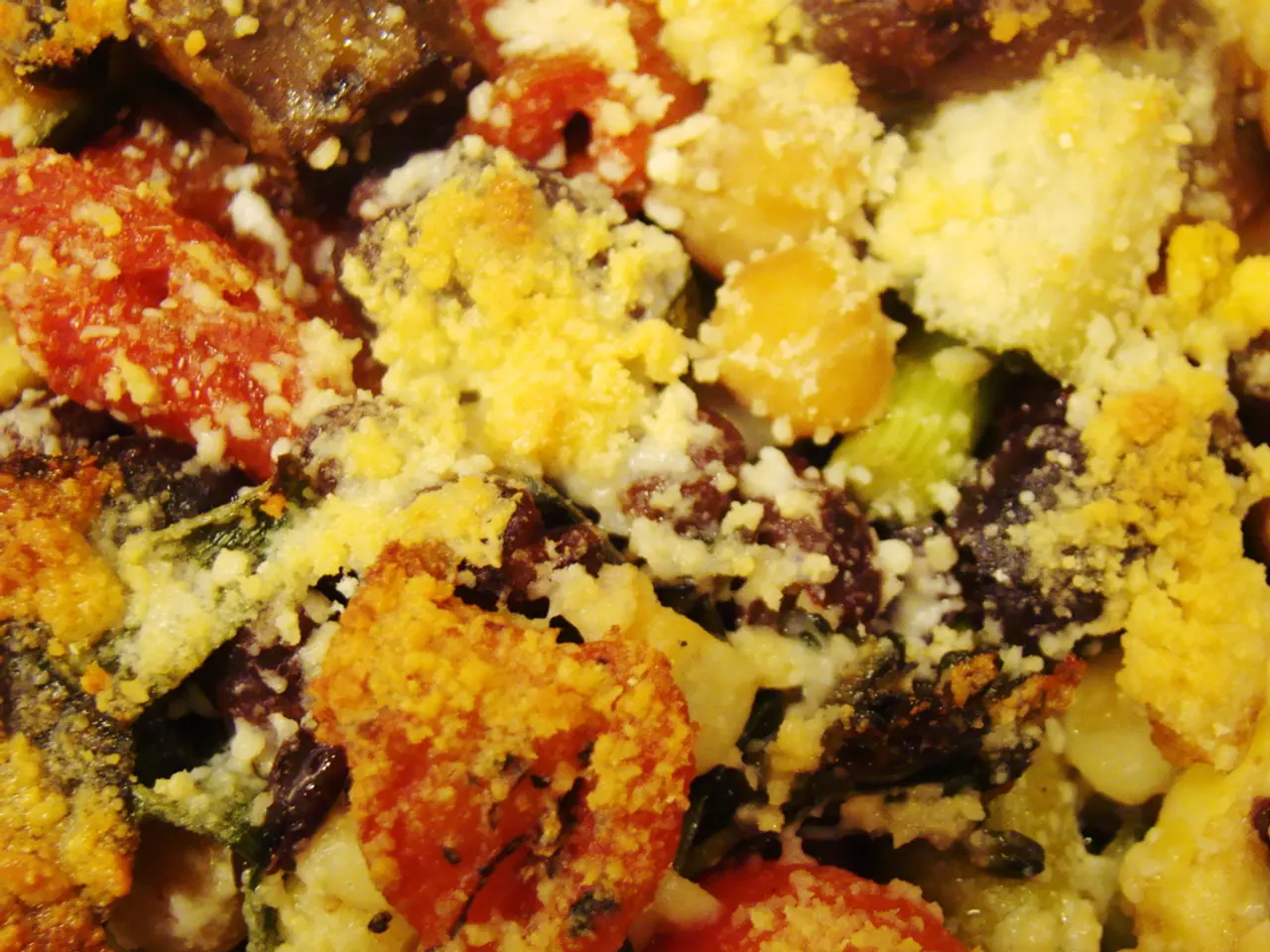AI Transformation in China's Food Sector: Shaping a Luminous Future Ahead
China's AI-Driven Food Sustainability Revolution
China is leading the charge in using Artificial Intelligence (AI) to drive food sustainability, addressing global challenges such as climate change, resource depletion, and the need for healthy lifestyles.
Reducing Food Waste
The Chinese government has introduced initiatives like the "Clean Plate Campaign" to encourage consumers to cut down on food waste. Simultaneously, AI innovations are playing a crucial role behind the scenes. AI-powered smart ordering systems and inventory management tools help restaurants and food retailers predict customer demand accurately, minimizing surplus food. Yum China's fast-food chains (KFC, Pizza Hut, Taco Bell) use AI-driven apps to recommend personalized menus, reducing food waste and improving operational efficiency. Innovative solutions like Foodres.AI use AI and 3D printing to upcycle household food waste into functional objects, promoting consumer awareness and behavior change in waste management.
Precision Agriculture
China is integrating AI technologies like drones, sensors, and big data analytics to optimize farming practices. AI monitors crop health, soil moisture, and pest infestations in real-time, enhancing resource use efficiency and crop yields. This is part of national policies, including the "Smart Agriculture Action Plan 2024-2028," which supports rural AI adoption for sustainable agriculture.
Alternative Proteins
While direct recent examples in the sources are limited, China's broader AI-driven food innovation ecosystem includes development efforts in alternative protein sources to reduce environmental impact. Starfield, a next-generation plant-based food company, leverages AI-driven insights to refine plant-based meat textures and flavors, ensuring that products appeal to local palates while meeting international standards for sustainability.
Personalized Meal Planning
AI systems like Yum China’s KFC Super App provide personalized menu recommendations, effectively tailoring meal options to customers’ preferences and nutritional needs, which helps reduce food waste and promote healthier diets.
Transparency and Traceability
AI-enabled quality control and sorting systems have been deployed to improve food supply chain transparency and reduce waste. For instance, the AI-powered "FD3" durian sorting system utilizes X-ray technology and AI to quickly scan and grade fruit quality, ensuring only high-grade produce enters the supply chain.
Future of Food
China’s approach integrates AI across the food system, enhancing sustainability from farm to consumer. Continued advancements are expected in smart farming, waste upcycling technologies, AI in food manufacturing, and enhanced supply chain analytics—all aimed at optimizing resources and lowering environmental impact at scale.
Investment in AI for Food Sustainability
Tao Zhang, cofounder of Dao Foods International, an investment firm focused on building alternative proteins in China, emphasizes the integration of AI into the food industry as a technological shift and a moral imperative for tackling issues such as sustainability, health, and accessibility. Dao Foods International was founded by Tao Zhang from Dao Ventures and Albert Tseng from Moonspire Social Ventures in collaboration with New Crop Capital.
In summary, China is leveraging AI in comprehensive ways to drive food sustainability, focusing especially on food waste reduction and precision agriculture while also pioneering technologies that support personalized nutrition, systemic transparency, and innovative waste upcycling. AI-driven innovations are anticipated to optimize resource use, predict agricultural risks, and support sustainable practices in food industries globally.
[1] The New York Times [2] China Daily [3] South China Morning Post [4] AgFunder News [5] Forbes
- Artificial Intelligence (AI) is being used in China to promote sustainable food practices, addressing challenges such as climate change, resource depletion, and improving health and wellness.
- The Chinese government's "Clean Plate Campaign" aims to reduce food waste, while AI innovations help minimize surplus food through AI-powered smart ordering systems and inventory management tools.
- In the realm of farming, AI technologies like drones, sensors, and big data analytics are optimizing farming practices in China, enhancing resource use efficiency and crop yields.
- China is also developing alternative protein sources using AI to reduce environmental impact, with companies like Starfield refining plant-based meat textures and flavors using AI-driven insights.
- Personalized meal planning is being facilitated through AI systems, such as Yum China’s KFC Super App, which tailors meal options to customers’ preferences and nutritional needs.
- AI-enabled quality control and sorting systems are improving food supply chain transparency, ensuring only high-grade produce enters the supply chain.
- AI-driven innovations in food sustainability are anticipated to optimize resources, predict agricultural risks, and support sustainable practices in food industries globally, fostering investment opportunities in this area, as demonstrated by Dao Foods International.




